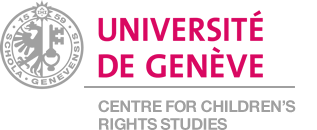Social Work Research As A Practice Of Transparency - Rudi Roose, Griet Roets, Tineke Schiettecat, Barbara Pannecoucke, An Piessens, Jan Van Gils, Hanne Op de Beeck, Wouter Vandenhole, Kristel Driessens, Kristof Desair, Koen Hermans, Bea Van Robaeys, Michel Vandenbroeck & Caroline Vandekinderen
Abstract
Social work research is inherently normative and as such the assumptions about social problems in social work research should be open to scrutiny and contestation. But although researchers often face tussles and huge contradictions, they rarely articulate them. In this article, we report on a small research project in which a collective of social work researchers in Flanders (the Dutch speaking part of Belgium) tried to think critically through some of the questions and complexities they were confronted with in social work research, more specifically in research on poverty. Our research aim implied that we tried to discuss the choices that were made during a diversity of research projects, including making explicit the grounds on which this happened. We learned that the choices made, although they seem to be very obvious ones, often remained implicit during the different research processes. We conclude that social work research requires that researchers attempt to realize a practice of transparency. The pursuit of such a practice of transparency refers to the importance of the creation of reflexive space in research communities to collectively embrace and discuss the complexities of social work research.
Sociaal werk is intrinsiek normatief. Daarom moet het perspectief op sociale problemen dat het onderzoek onderbouwt steeds bediscussieerbaar en tegensprekelijk zijn. Hoewel onderzoekers vaak kampen met problemen en dilemmas in hun werk, articuleren ze deze zelden. In dit artikel rapporteren we over een klein onderzoeksproject in Vlaanderen, waarin een collectief van sociaal werk onderzoekers een poging deed om kritisch na te denken over de vragen en complexiteit die ze hadden ervaren in hun onderzoek, meer specifiek met betrekking tot armoedeonderzoek. We wensten de keuzes die werden gemaakt in de diversiteit van de besproken onderzoeksprojecten bloot te leggen en te bediscussiëren. Het werd duidelijk dat deze keuzes vaak te impliciet blijven tijdens onderzoek. We besluiten dat sociaal werk onderzoekers moeten streven naar transparante praktijken. Dergelijke praktijken veronderstellen dat onderzoekers als een onderzoeksgemeenschap collectief ruimte voor reflexiviteit creëren en zodoende de mogelijkheid stimuleren om de complexiteit van sociaal werk onderzoek te omarmen.
